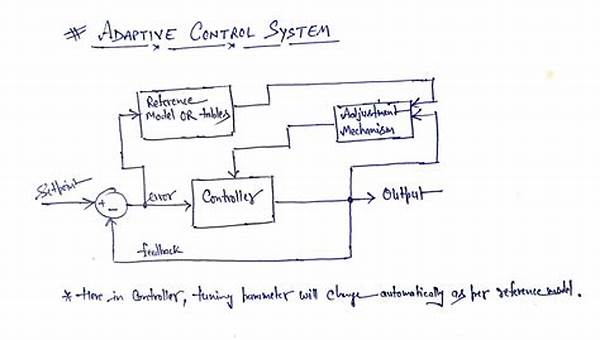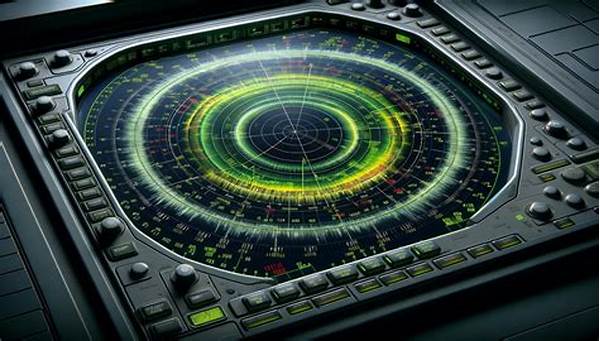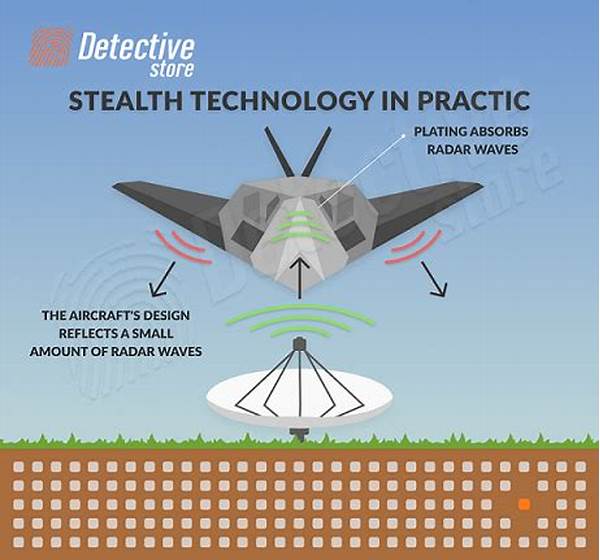Adaptive control system engineering is a rapidly evolving field that bridges the gap between traditional control systems and modern technological demands. It addresses the need for systems that can adapt to environmental changes and unpredictable conditions in real-time. Engineers in this field are like maestros, orchestrating symphonies of algorithms and sensors to create adaptive systems that can learn and improve autonomously. At its core, adaptive control involves real-time adjustments in response to changing conditions, ensuring optimal performance and minimizing the risk of system failures. As technology advances, the principles of adaptive control system engineering become more crucial, supporting applications from aerospace to automobiles and beyond.
Read Now : Anti-ship Missile Deployment Leander
The Magic Behind Adaptive Control System Engineering
Yo, when it comes to adaptive control system engineering, it’s all about flexibility and quick thinking. Imagine it like a DJ spinning tracks at a club, reading the crowd, and changing the beats to keep the party alive. That’s what adaptive control systems do—they adjust to keep things running smoothly. These systems are like the superheroes of engineering, stepping in when traditional control systems just aren’t cutting it. They’re built to handle the unexpected, making real-time decisions—kinda like having a sixth sense. Adaptive control system engineering is the future, man. Whether it’s in aviation, where navigation needs to be spot-on, or in cars that drive themselves, these systems make sure everything is on point. Engineers craft systems that can learn on the fly, ensuring they keep up with whatever gets thrown their way. So, for anyone looking to dive into a field that’s as dynamic as a rollercoaster ride, adaptive control system engineering is where it’s at.
Decoding Adaptive Control System Engineering
1. So, adaptive control system engineering is like having a brainy best friend who’s got your back, adjusting to life’s curveballs with ease, keeping everything chill and running smooth.
2. Picture a dance crew, constantly switching moves mid-performance to match the music—yep, that’s adaptive control system engineering in action!
3. Think of adaptive control system engineering like a smart thermostat, keeping the vibe just right no matter how wild it gets outside.
4. It’s the ultimate copilot, always readjusting and adapting to keep your ride smooth and on course, no matter where you’re headed.
5. Adaptive control system engineering? It’s like a cool cat, always landing on its feet, no matter what kinda chaos is thrown its way.
Getting Down with Adaptive Control System Engineering
Dive into the world of adaptive control system engineering and it’s like stepping into a sci-fi movie. This isn’t just regular engineering—it’s the stuff that makes robots smarter, planes fly smoother, and cars drive themselves. Imagine systems that are so smart they learn from their mistakes and make things better every time. Adaptive control system engineering is where brains meet brawn, tweaking how things work in real-time, like a ninja always ready to adapt. Whether it’s the latest gadget or complex industrial systems, if it needs to be perfect no matter what, then adaptive control system engineering is pulling the strings behind the scenes. Engineers in this field are the masterminds adjusting the nuts and bolts, creating innovative solutions that can handle anything without breaking a sweat.
Adaptive control system engineering is the bridge to the future, making sure our tech stays in sync with the fast-paced world we live in. Whether we’re talking about improving energy efficiency or ramping up safety measures in vehicles, these adaptive systems are the key players. Engineers don’t just react—they anticipate, making sure the systems can improve their own game time after time. Yeah, it’s cutting-edge, and if you’re in the tech game, you wanna be all over this.
The Real Deal: Adaptive Control System Engineering Hacks
Adaptive control system engineering is all about being quick on your feet. Imagine your favorite gamer crushing it in a tournament, nailing every move slightly better than the last—that’s the level of adaptability we’re talking about. Bugs and errors? Forget about it. These systems roll with the punches, fixing glitches and ironing out hiccups in real-time. With sensors and algorithms working like a dream team, adaptive control system engineering makes even the most complex systems seem like child’s play. It’s all about learning and adapting, baby. From tuning algorithms to enhancing system responses, adaptive control is the unsung hero making sure everything’s running like a well-oiled machine.
Read Now : Advancements In Radar Awareness Systems
If you’re dabbling in the engineering sphere, mastering this tech is like bagging the ultimate power-up. It’s the real MVP behind seamless user experiences and autonomous technologies. Whether tweaking a system for better energy consumption or making sure a drone flies seamlessly in high winds, adaptive control system engineering is the wizard behind the magic curtain, ensuring everything rocks just the way it should.
Crazy Cool World of Adaptive Control System Engineering
Adaptive control system engineering isn’t just about numbers and coding; it’s the backbone of today’s tech revolution. From drones zooming through the skies to household gadgets that learn your lifestyle, it’s everywhere you look. Engineers in this arena are like the cool kids at school—always one step ahead, solving problems you didn’t even know existed. It’s like surf’s up and sailing on a high-tech wave. These systems literally think on their feet, making real-time decisions like a savvy street-smart dude avoiding traffic to get to the party on time. Yeah, it’s that smooth.
Take a deeper look, and you’ll see adaptive control system engineering working in places like power grids, delivering just the right amount of juice to avoid overload. It’s all about sustainability, efficiency, and keeping things chill. You know when your smartphone learns the best way around battery life and adjusts settings automatically? That’s adaptive control system tech, baby! Working silently behind the scenes, ensuring everything’s spot-on and stress-free. It’s like having the tech world’s best-kept secret right in the palm of your hand, ready to adapt and conquer.
Behind the Scenes with Adaptive Control System Engineering
Adaptive control system engineering is where tech meets tenacity. It’s the secret sauce behind seamless innovation and tech evolution. Without it, we’d still be fumbling around with gadgets that don’t give a damn about user efficiency. In this competitive world, these systems are the bad boys making sure everything runs smoother than a jazz saxophonist’s lullaby. With systems adapting faster than a chameleon on a rainbow, air traffic control to everyday electronics get just that extra edge, turning complexity into simplicity.
With adaptive control system engineering, innovation doesn’t just happen—it jumps, skips, and triple flips its way into everyday tech, ensuring whatever gets launched is tuned to perfection. It’s the backbone, the magic wand ensuring every piece of tech is ready to wow and adapt as it matures. Engineers are the unsung heroes here, blending speed and precision to curate experiences that change and evolve, creating magic that just keeps getting better.
Wrapping Up Adaptive Control System Engineering
Adaptive control system engineering is like the engine purring beneath the hood of technology’s fastest cars. It has this chill vibe, effortlessly ironing out snags and tweaking controls like it was born to do it. Ain’t no stopping these systems once they kick into gear—improving, learning, and evolving beyond traditional limits. With adaptive control system engineering, we get systems that are just as cool and collected as that smooth-talking friend who always knows the best spots in town.
From revamping energy grids to elevating the gaming experience, this engineering domain isn’t just about keeping pace; it’s about setting that pace. Engineers become the real MVPs here, creating adaptive engines for futuristic tech as if it were an art form. Just like a maestro conducting an orchestra, they oversee harmonies that ensure tech dreams become reality. In the grand theatre of technological advance, adaptive control system engineering is the script we all need to follow, pulling us into a future where systems think, learn, and perform beyond imagination.




